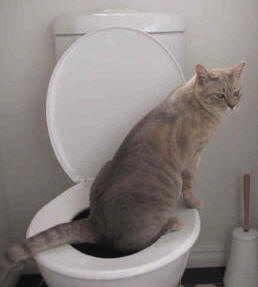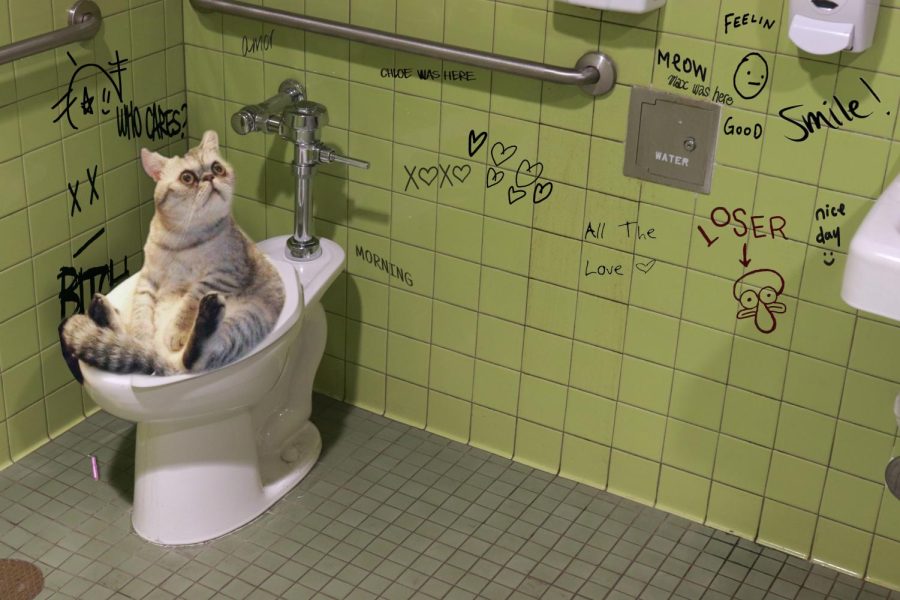Why Flushing Cat Poop Down Your Toilet Isn't a Good Idea - Advice for Safer Disposal
Why Flushing Cat Poop Down Your Toilet Isn't a Good Idea - Advice for Safer Disposal
Blog Article
This article down below relating to Don’t flush cat feces down the toilet is pretty much entertaining. You should check it out.

Introduction
As feline proprietors, it's essential to be mindful of just how we get rid of our feline friends' waste. While it might appear hassle-free to purge feline poop down the commode, this technique can have damaging effects for both the atmosphere and human health and wellness.
Alternatives to Flushing
The good news is, there are safer and much more liable means to get rid of cat poop. Think about the following alternatives:
1. Scoop and Dispose in Trash
One of the most usual approach of throwing away pet cat poop is to scoop it into a naturally degradable bag and throw it in the trash. Be sure to use a dedicated trash scoop and deal with the waste quickly.
2. Usage Biodegradable Litter
Choose biodegradable feline trash made from products such as corn or wheat. These clutters are environmentally friendly and can be securely taken care of in the trash.
3. Bury in the Yard
If you have a backyard, take into consideration burying pet cat waste in a marked location away from veggie gardens and water sources. Be sure to dig deep sufficient to avoid contamination of groundwater.
4. Install a Pet Waste Disposal System
Buy a pet dog waste disposal system especially made for pet cat waste. These systems use enzymes to break down the waste, decreasing odor and ecological impact.
Health Risks
In addition to ecological worries, purging pet cat waste can also present health and wellness threats to human beings. Cat feces may contain Toxoplasma gondii, a parasite that can cause toxoplasmosis-- a possibly severe ailment, particularly for expectant females and people with weakened body immune systems.
Ecological Impact
Flushing feline poop presents damaging pathogens and parasites right into the water system, presenting a substantial threat to water communities. These contaminants can adversely influence aquatic life and compromise water high quality.
Final thought
Responsible animal possession extends past supplying food and sanctuary-- it also entails proper waste management. By avoiding flushing feline poop down the toilet and selecting alternative disposal methods, we can reduce our environmental impact and shield human health.
Why You Should Never Flush Cat Poop Down the Toilet
A rose by any other name might smell as sweet, but not all poop is created equal. Toilets, and our sewage systems, are designed for human excrement, not animal waste. It might seem like it couldn’t hurt to toss cat feces into the loo, but it’s not a good idea to flush cat poop in the toilet.
First and foremost, assuming your cat uses a litter box, any waste is going to have litter on it. And even the smallest amount of litter can wreak havoc on plumbing.
Over time, small amounts build up, filling up your septic system. Most litter sold today is clumping; it is made from a type of clay that hardens when it gets wet. Ever tried to scrape old clumps from the bottom of a litter box? You know just how cement-hard it can get!
Now imagine just a small clump of that stuck in your pipes. A simple de-clogger like Drano isn’t going to cut it. And that means it’s going to cost you big time to fix it.
Parasitic Contamination
Believe it or not, your healthy kitty may be harboring a nasty parasite. Only cats excrete Toxoplasma in their feces. Yet it rarely causes serious health issues in the cats that are infected. Most people will be fine too if infected. Only pregnant women and people with compromised immune systems are at risk. (If you’ve ever heard how women who are expecting are excused from litter cleaning duty, Toxoplasma is why.)
But other animals may have a problem if infected with the parasite. And human water treatment systems aren’t designed to handle it. As a result, the systems don’t remove the parasite before discharging wastewater into local waterways. Fish, shellfish, and other marine life — otters in particular — are susceptible to toxoplasma. If exposed, most will end up with brain damage and many will die.
Depending on the species of fish, they may end up on someone’s fish hook and, ultimately on someone’s dinner plate. If that someone has a chronic illness, they’re at risk.
Skip the Toilet Training
We know there are folks out there who like to toilet train their cats. And we give them props, it takes a lot of work. But thanks to the toxoplasma, it’s not a good idea.

I am very inquisitive about Don’t flush cat feces down the toilet and I really hope you enjoyed reading our blog entry. In case you enjoyed our article if you please remember to share it. I truly appreciate reading our article about How to Dispose of Cat Poop and Litter Without Plastic Bags.
Schedule Service Pickup Report this page